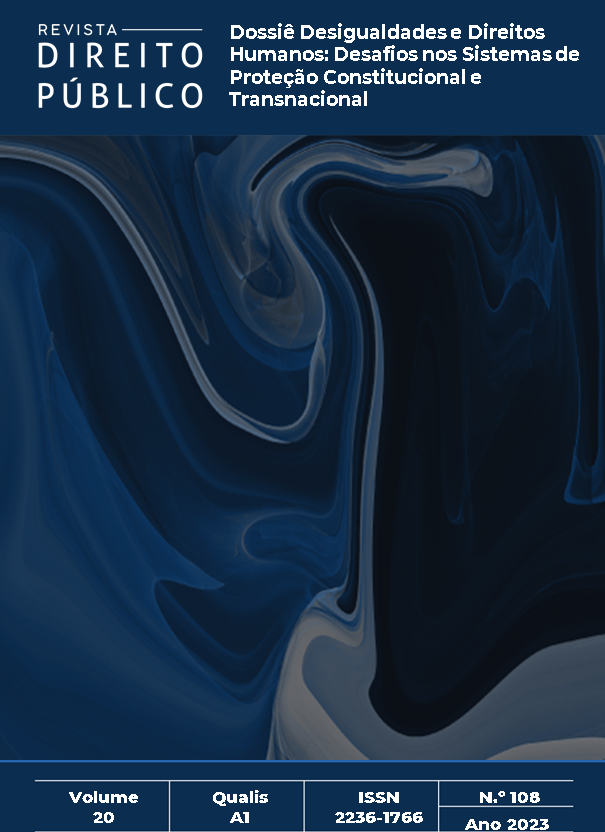LOS SENTIDOS DE LA ESPIRITUALIDAD INDÍGENA Y SU APLICACIÓN POR LA CORTE INTERAMERICANA DE DERECHOS HUMANOS
DOI:
https://doi.org/10.11117/rdp.v20i108.7609Abstract
Spirituality does not only play a central role in determining a place as indigenous territory, but also in the daily lives of indigenous communities. Practices considered trivial by Western cultures are imbued with spiritual and often sacred meaning for these communities. Furthermore, certain conduct, such as the removal of a community or the prohibition of access to a sacred or fishing site, constitutes spiritual harm that can also result in violation of various human rights. Seeking to approach a concept for indigenous spirituality and identifying how International Law deals with this issue, this article analyzes how the jurisprudence of the Inter-American Court of Human Rights treats damage to spirituality as a form of violation of different human rights provided for in the American Convention . Recognizing the cognitive limitations of those who do not live the culture they intend to understand, the authors of this article rely on a bibliographical review to approach the concept of spirituality and, in addition, on a documentary review to analyze the legal treatment of the topic and the jurisprudence of the Inter-American Court. The article concludes that, when it comes to indigenous peoples, the Inter-American Court takes into account the spiritual component of several Convention rights and, at times, considers that damage to spirituality constitutes a violation of certain rights. On the other hand, the Court did not recognize spirituality as an autonomous indigenous human right, although there is room to go further.
Downloads
Published
How to Cite
Issue
Section
License
Copyright (c) 2024 Direito Público

This work is licensed under a Creative Commons Attribution-NonCommercial 4.0 International License.
O(s)/A(s) autores(as) dos manuscritos submetidos concorda(m) com as regras a seguir:
1) Todos os autores e autoras participaram do trabalho, são responsáveis pelas ideias e conceitos nele emitidos e atestam sua conformidade com os princípios éticos exigidos.
2) Todos os autores e autoras concordam com a forma final do trabalho e em ceder os direitos para publicação nos canais de publicação da Escola de Direito do IDP.
3) Todos os autores e autoras informam que o manuscrito é de sua autoria e assumem a responsabilidade pelo trabalho, declarando que a obra a ser publicada não infringe quaisquer direitos de propriedade intelectual de terceiros.
3.1) Em caso de submissão simultânea, além da reprovação imediata do artigo e comunicação ao(s) respectivo(s) periódico(s), a Revista Direito Público se reserva o direito de não receber novas submissões de todos os autores implicados pelo prazo de 2 (dois) anos, contado a partir da data de ciência do fato.
4) Todos os autores e autoras autoriza(m) a edição de seu trabalho e cede(m) à Escola de Direito do IDP os direitos de autor para reproduzir, editar e publicar ou veicular o citado trabalho em qualquer forma midiática, resguardada a autoria, em particular sob forma digital, em arquivo eletrônico online na Internet, bem como armazená-los em seu repositório de acordo com o desenvolvimento do processo editorial. Esta concessão não terá caráter oneroso para a Escola de Direito do IDP, não havendo remuneração sob qualquer modalidade pela utilização do referido material, tendo este o caráter de colaboração científica.












